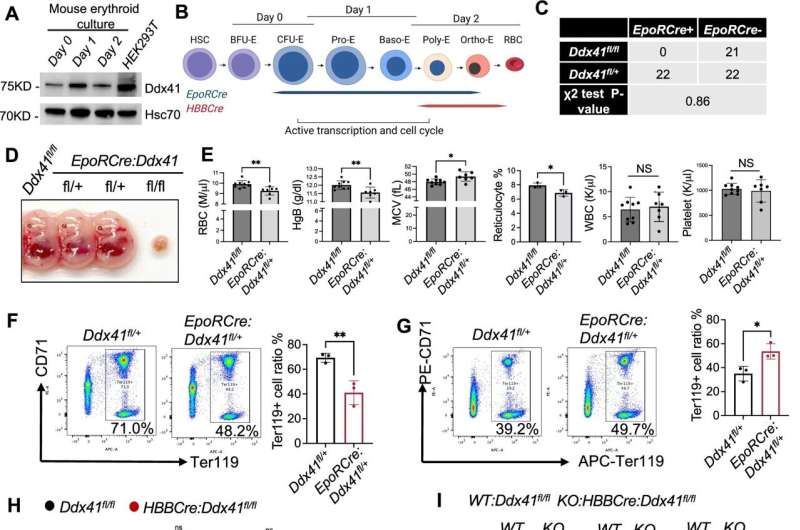Scientists have uncovered how mutations in a gene called DDX41—one of the most common inherited risk factors for bone marrow cancers—derail red blood cell production and can trigger a dangerous inflammatory response that may lead to blood cancers like myelodysplastic syndrome and acute myeloid leukemia.
The study, led by Peng Ji, MD, Ph.D., ’15 GME, the Marie A. Fleming Research Professor of Pathology in the Divisions of Experimental Pathology and Hematopathology, sheds light on a long-standing mystery: how DDX41 normally functions in healthy cells and why its loss is so damaging.
“We noticed that many patients with faulty DDX41 often develop anemia,” said Ji, who is also vice chair for research in the Department of Pathology. “That led us to suspect that red blood cell development might be especially vulnerable to the loss of this gene.”

